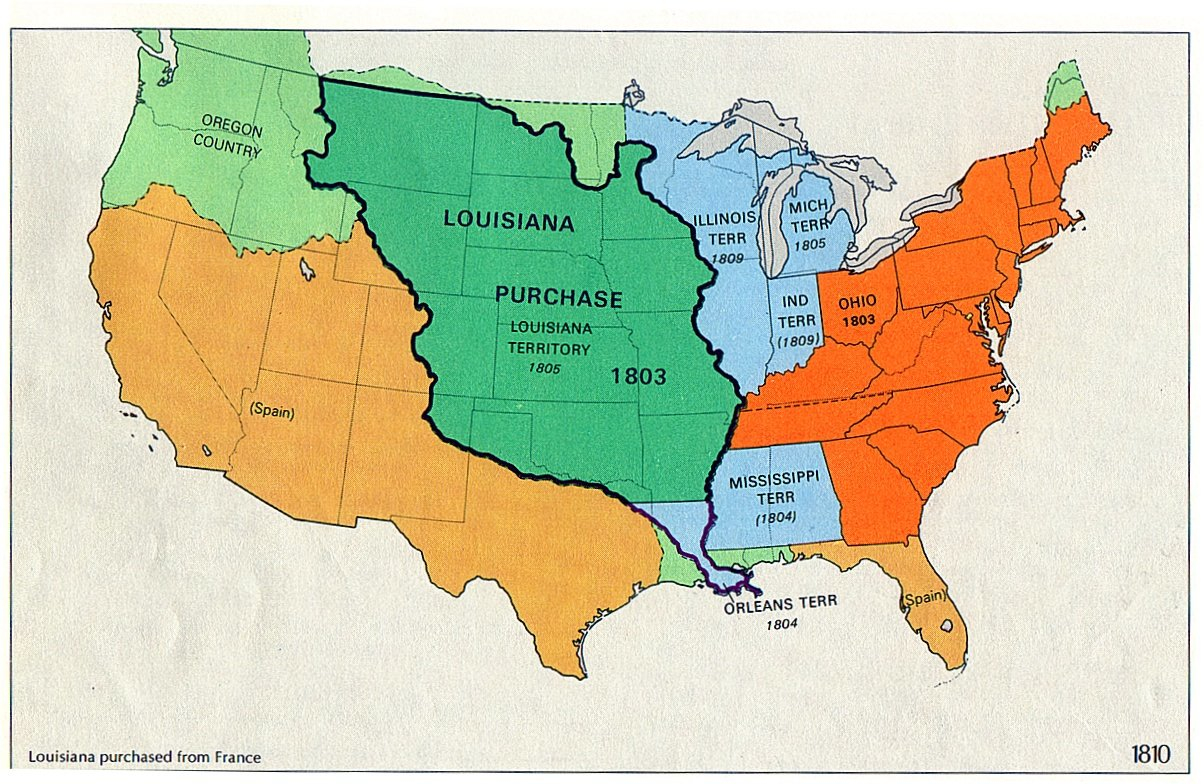
Map showing the lands annex by the United States in the cession from France in 1803.
The conventional
story of the European's westward migration across the North
American continent begins in 1803 when President Thomas Jefferson
arranged a treaty with Napoleon Bonaparte to annex the French
territory of Louisiana. Generations of American
children have been taught in school that the United States
government acquired a million square miles of unsettled land in the
West in a deal known as the Louisiana Purchase.
(click here for more)

What the government actually acquired from France amounted to
a few dozen square miles of land beneath the port towns of New
Orleans and St. Louis. The new republic also
obtained the right to use the rivers that flowed through the
territory for navigation and commerce -- no trifling matter -- and
finally, it obtained the right to engage in negotiations for land
cessions with the territory's owners, the American
Indians. Although the nation's western boundary
was moved on maps to the foothills of the Rocky Mountains, the
government did not acquire title to the land
itself. Despite the loftiest claims of
generations of American historians to the contrary, the U.S.
Constitution, International Law, and the U.S. Supreme Court, all
recognized the American Indians as the rightful owners of the
million square miles of land that now fell within the nation's
westernmost boundaries. In stark contrast to our
conventional narratives, title to that land remained with the
Indians.
Consequently, the Euro-American's westward-looking ambitions
in the 19th Century had to overcome the obstacle of Indian land
ownership. This, too, was no trifling
matter. The citizenry's elected representatives
in Congress, and a succession of presidents, would eventually
overcome that obstacle through the masterful use of the
government's favorite tools -- treaty and breach, and executive
orders. As seen through a lens brought to focus
by the hundreds of treaties ratified during the 'removal eras' of
the 19th Century -- each one subsequently violated or abrogated in
whole or in part by the federal government -- the social forces
that were let loose in 'the great migration' of Euro-Americans to
the Pacific Ocean under the banner of Manifest Destiny begin to
take on new aspects of meaning. The
lawlessness of white men in Congress and on the frontier, and the
officially sanctioned genocide of Indians that ensued, raise
troubling questions about the widely accepted and sanitized
theories of America's westward expansion across the territory know
as Louisiana.
Related People
Related Flashpoints
Related Places